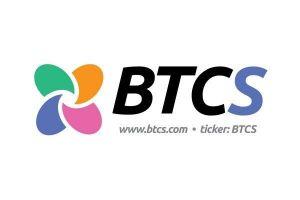Disclaimer: The text below is a press release that was not written by Cryptonews.com.

In 2021, companies are enhancing their treasury management strategies to realize improved returns by allocating liquid funds to cryptocurrencies. This shift marks a significant advance in the institutionalization of the cryptocurrency market. In this environment, well-known cryptocurrencies such as bitcoin and ethereum have shown solid appreciation as both have more than doubled in price since the end of 2020.
Based on its experience in the cryptocurrency market and the broader blockchain ecosystem, BTCS has established its own proprietary cryptocurrency transaction verification, or “staking,” operation which is now being employed for its own treasury management needs and in the future plans to provide this service to clients.
In 2014, BTCS became the first U.S. public company to mine bitcoin. As such, this digital asset and blockchain technology-focused company pioneered a field others are only now starting to explore. In 2021, BTCS is the first U.S. public company to run validator nodes on the ethereum 2.0 cryptocurrency network with a 200-node staking operation. For BTCS, the staking operation is expected to drive strong near-term revenue growth with financial returns superior to more resource-intensive “proof-of-work” bitcoin mining. In addition, the staking operation may enable other revenue-generating operations such as staking-as-a-service.
Blockchains are secured by nodes that validate and verify transactions in each block and keep the network secure. Setting up ethereum nodes ultimately serves two purposes: it helps the network to both grow and to maintain its integrity through the verification of the transactions that happen within each block. On December 1, 2020, ethereum began transitioning to a “proof-of-stake” protocol, Ethereum 2.0. Under the “proof-of-stake” consensus algorithm, ETH holders have the exclusive right to operate validator nodes on the network and verify transactions, thereby earning transaction fees for their work.
BTCS is running validator nodes based on ethereum 2.0 and generating revenues therefrom. According to Charles Allen, Chief Executive Officer of BTCS, “Our transaction verification services operation are driving strong near-term revenue growth. We believe in the future of ‘smart-crypto’ and see ethereum, which is transitioning to a “proof-of-stake” consensus algorithm, as the flagship of smart-crypto blockchains. Less resource-intensive than “proof-of-work” verification services, “proof-of-stake” validation provides attractive economics. Our goal is to scale the BTCS’ network of actively operated validators, ultimately positioning us to offer additional services in the future.”
About BTCS:
BTCS is an early entrant in the digital asset market and one of the first U.S. publicly traded companies focused on digital assets and blockchain technologies. The Company through its transaction verification services business actively verifies and validates blockchain transactions and is rewarded with digital assets for its work. The Company is also developing a proprietary digital asset data analytics platform that allows users to consolidate their crypto trades from multiple exchanges onto a single platform, enabling users to view and analyze their performance, risk metrics, and potential tax implications. The Company employs a digital asset treasury strategy with a primary focus on disruptive non-security protocol layer assets such as bitcoin and ethereum. For more information visit: www.btcs.com
















